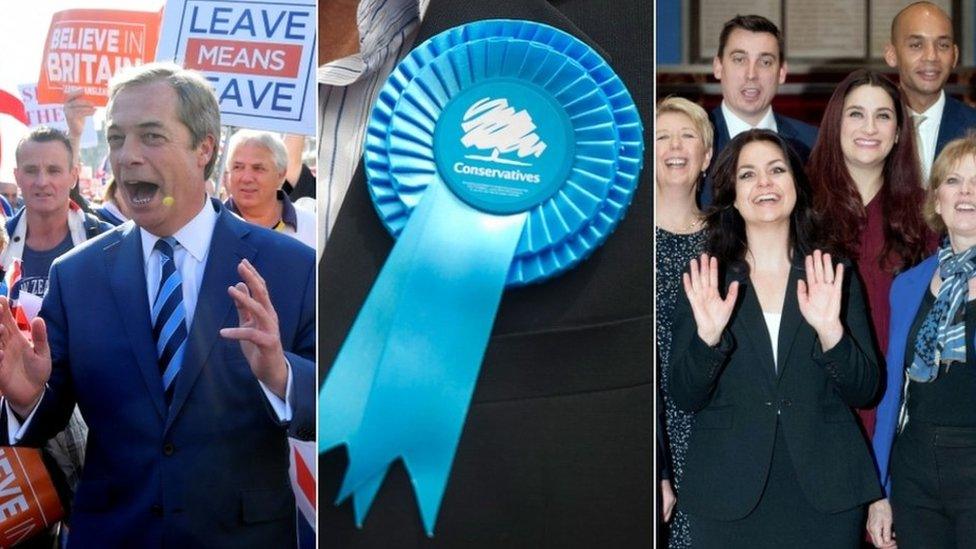EU elections 2019: All you need to know about the vote in Wales
- Published
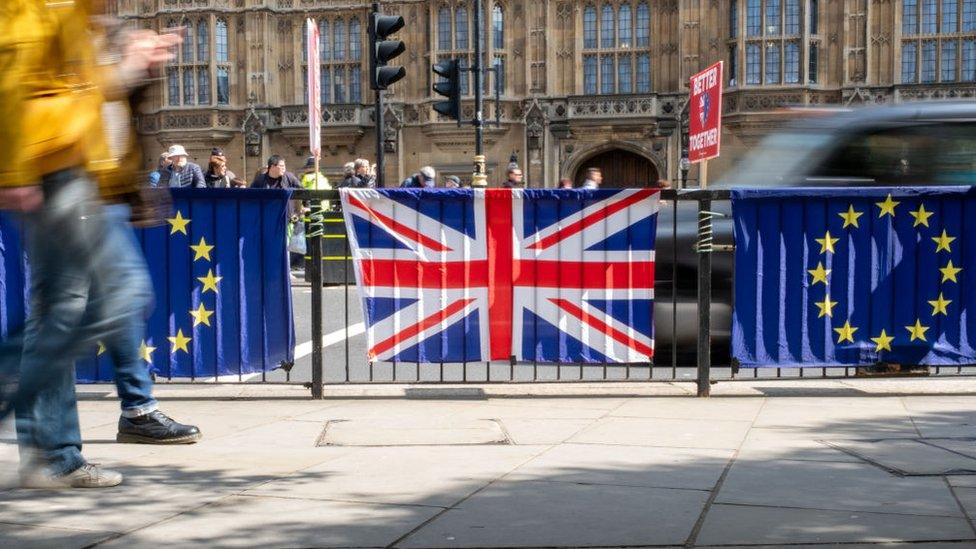
On the 23 May voters in Wales and across the UK will take part in elections to the European Parliament.
Candidates who are successfully elected will take their seats in July and hold them until the current Brexit deadline of October, unless matters are resolved sooner or another extension is agreed.
The UK has 73 seats in the parliament - split into different areas. Wales will be electing four MEPs to serve the whole country.
For European Union elections, parties stand on lists. You get one vote to support the party of your choice.
Labour, the Tories and Plaid Cymru are defending one Welsh seat each, as is the Brexit Party's Nathan Gill who was elected for UKIP in 2014.
Who is standing?
The candidates are:
Conservative: Dan Boucher, Craig Lawton, Fay Jones and Tomos Davies
Labour: Jackie Jones, Matthew Dorrance, Mary Wimbury, Mark Whitcutt
Plaid Cymru: Jill Evans, Carmen Smith, Patrick McGuinness, Ioan Bellin
Welsh Liberal Democrats: Sam Bennett, Donna Lalek, Alistair Cameron, Andrew Parkhurst
UKIP: Kris Hicks, Keith Edwards, Tom Harrison, Robert McNeil-Wilson
Greens: Anthony Slaughter, Ian Chandler, Ceri Davies and Duncan Rees
Brexit Party: Nathan Gill, James Wells, Gethin James and Julie Price
Change UK: Jon Owen Jones, June Davies, Matthew Paul and Sally Stephenson
Nathan Gill and Jill Evans are both sitting MEPs - the Conservative's Kay Swinburne and Labour's Derek Vaughan will be standing down.
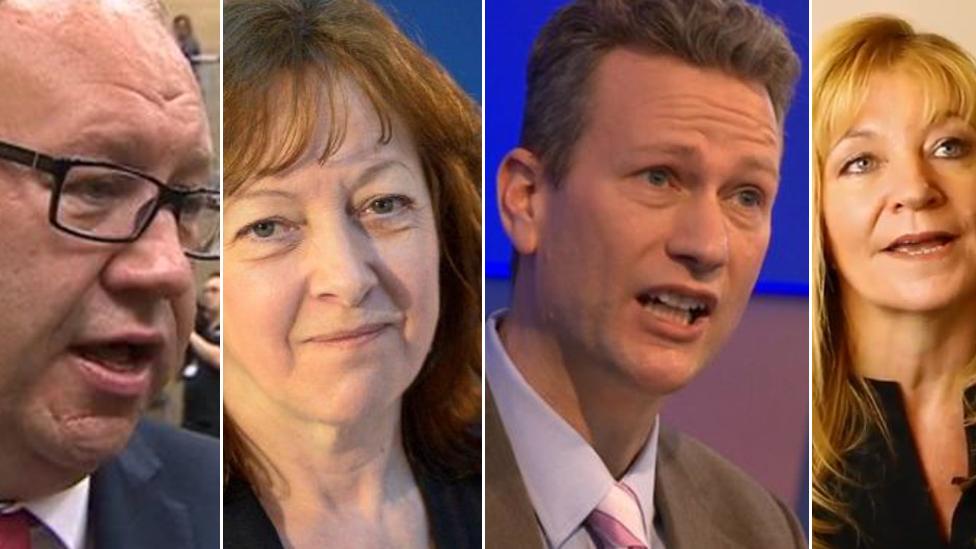
Wales' current MEPs: Derek Vaughan, Jill Evans, Nathan Gill and Kay Swinburne (l-r)
Who are the lead candidates and what do the parties stand for?
Change UK
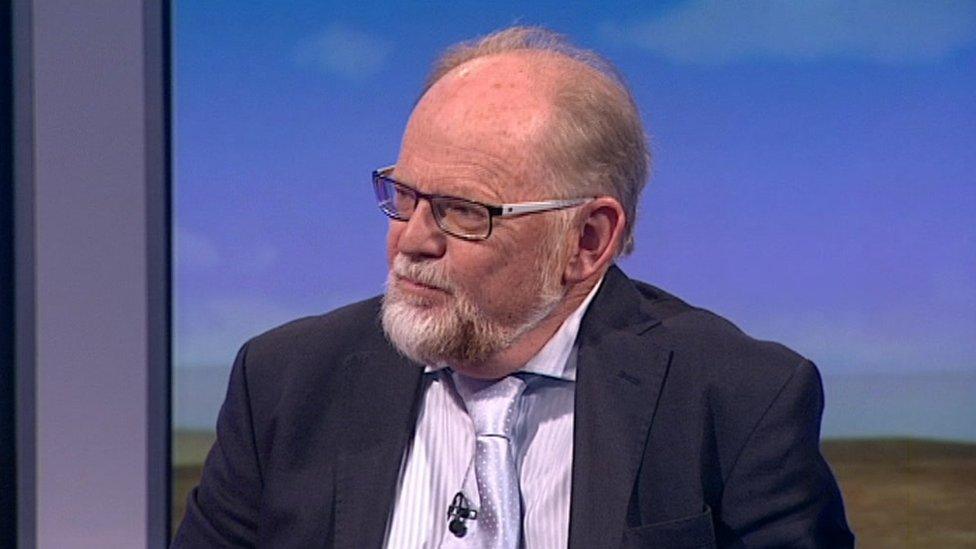
Jon Owen Jones is Change UK's lead candidate
Change UK is a rebrand for the Independent Group of anti-Brexit MPs who broke away from Labour and the Conservatives - the party is using both names on the ballot paper.
As with other like-minded groups, including Plaid Cymru, the Greens and the Liberal Democrats, it is backing a "People's Vote", another referendum, with the option to remain in the EU on the ballot paper.
In Wales its lead candidates is Jon Owen Jones - a former Labour MP for Cardiff Central who held the seat from 1992 to 2005, serving as a Labour whip and a Wales Office minister during that time.
Its second candidate is June Davies, who stood for the pro-EU Renew party in the Newport West by-election and is a teacher of economics, enterprise and business studies.
Welsh Conservatives
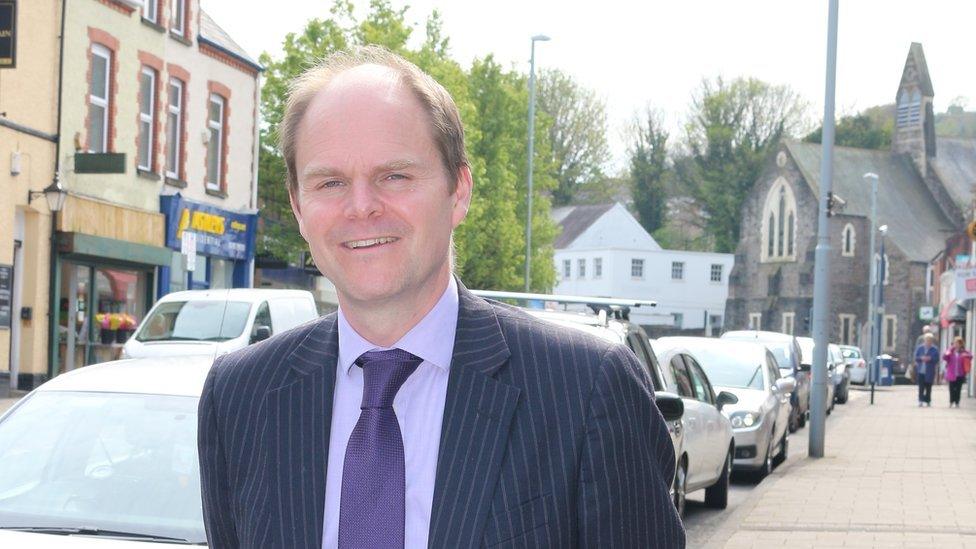
Dan Boucher stood for the Conservatives in Swansea East in 2011
The Conservative campaign has barely gotten off the ground, and has been hampered by Tory activists suggesting they may not vote for it this time around.
Dan Boucher is the Tory lead candidate in Wales. Kay Swinburne, the sitting Tory MEP, is standing down.
He previously stood for the party in Swansea East in the 2011 assembly election and works for the Christian Action Research and Education campaigning group,
The party says only it can deliver Brexit at Westminster - Mr Boucher said a vote for UKIP or the Brexit Party in the European Parliament elections was a "wasted vote".
Mr Boucher is followed by Craig Lawton, who works in the assembly for South Wales West AM Suzy Davies.
Green Party
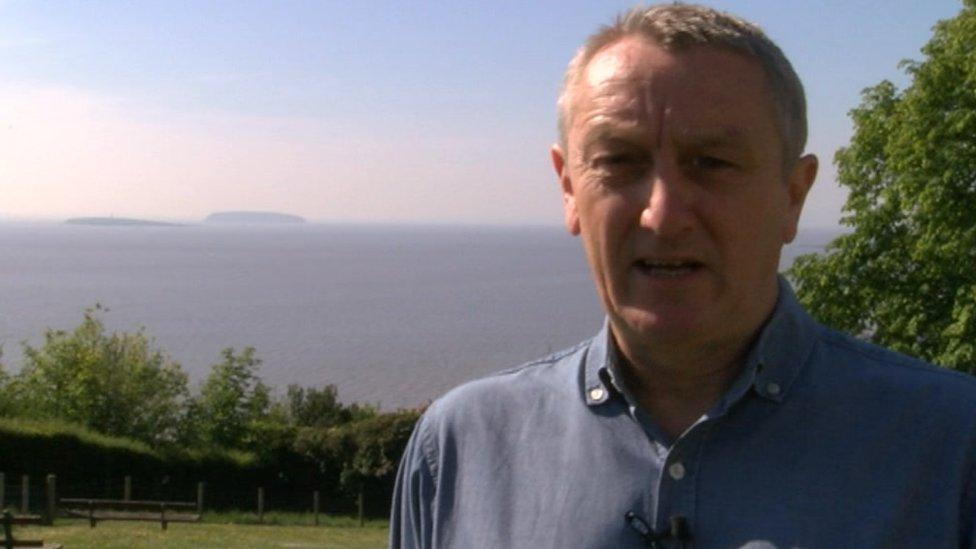
Anthony Slaughter said the Green Party is "growing in Wales"
The Green Party has no MEPs in Wales but has held three seats in England.
As well as calling for a further referendum the party wants to "fix the problems that led to Brexit", and urgent action taken to tackle climate change.
The list is led by the party's Welsh leader Anthony Slaughter - a garden designer from Penarth who has been involved in local community-based environmental group Gwyrddio Penarth Greening.
Ian Chandler is the party's number two. He has worked for Oxfam and Amnesty International, and lives near Skenfrith, in Monmouthshire.
Labour Party
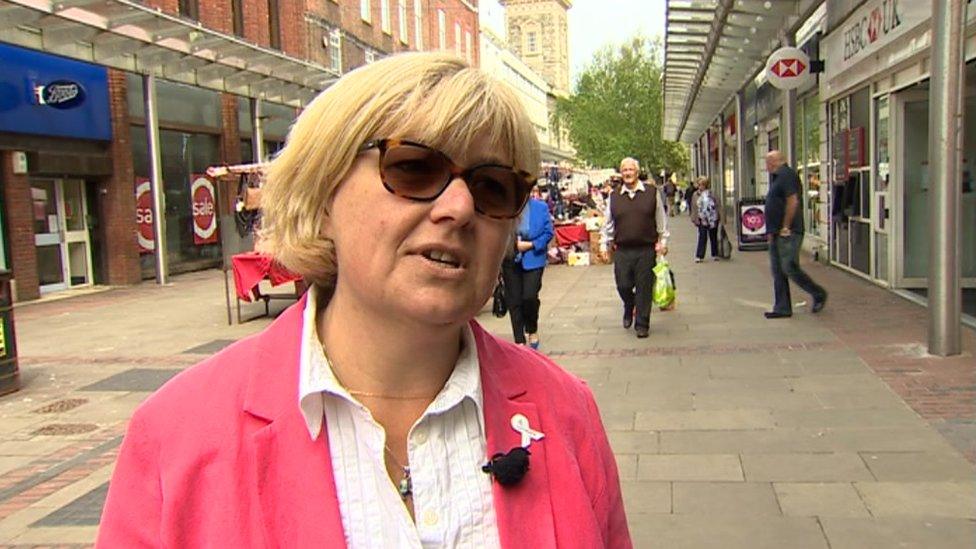
Jackie Jones is a former president of the European Women Lawyers Association
Labour accepted the EU referendum result in its 2017 manifesto, but it has also supported a further referendum if the party cannot get changes to the government's Brexit deal, or a general election.
The party has faced pressure from pro-EU members who feel the message is not strong enough and that a new vote should be backed outright.
Labour called on voters to back it to stop "far-right parties from winning more seats".
In Wales the lead candidate is Jackie Jones, who taught at Cardiff Law School and is a former president of the European Women Lawyers Association. Sitting Labour MEP Derek Vaughan is standing down.
She is followed by Matthew Dorrance, leader of the Labour group on Powys council and a member of the Powys Teaching Health Board.
Ms Jones has said that she and the others on the list are in favour of a new vote with remaining in the EU on the ballot.
Welsh Liberal Democrats
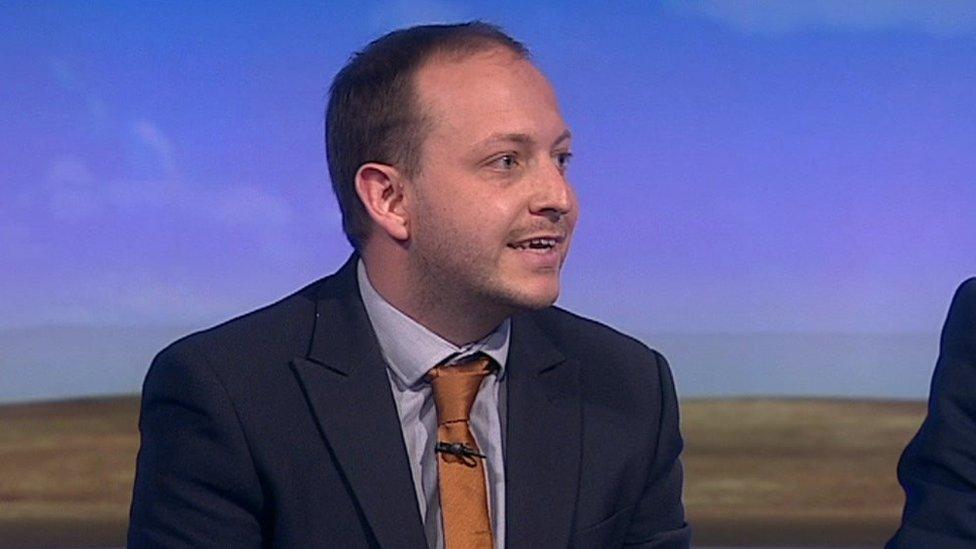
Sam Bennett is a former chair of the Lib Dems youth wing in Wales
The Welsh Liberal Democrats have been fighting the elections as an unapologetically pro-European Party, backing the campaign for a further referendum.
UK leader Vince Cable says the organisation is the "party of remain" - the party is battling other groups who have similar messages to each other when it comes to Brexit.
The Welsh list is led by Sam Bennett, a former chair of the Welsh Young Liberals (then IR Cymru), and now works for Swansea University Medical School.
Donna Lalek is the Lib Dem number two - a lawyer and teacher from Broughton.
Plaid Cymru
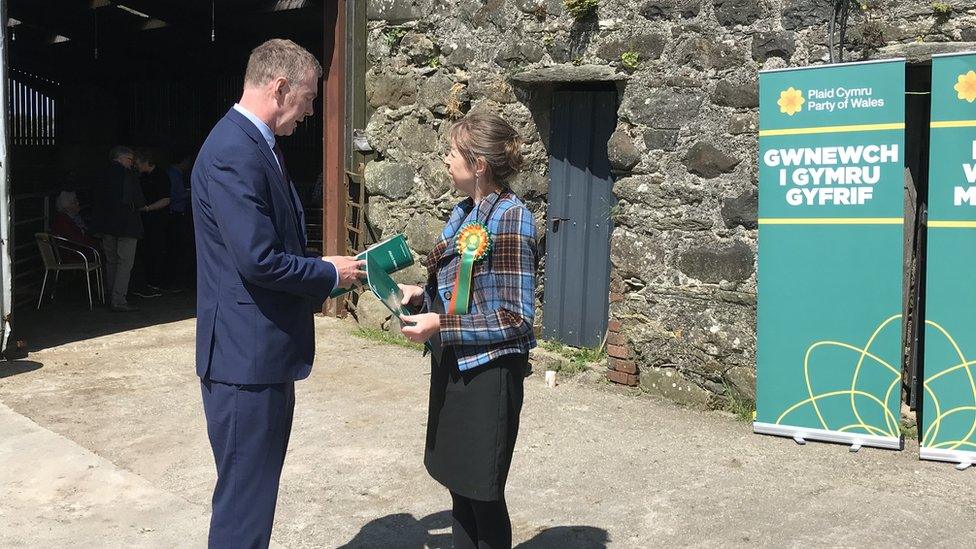
Adam Price and Jill Evans launched the party's manifesto earlier in May
Plaid Cymru is hoping to attract Labour voters who feel let down over Brexit.
The pro-Welsh independence group says it is the only party in Wales unequivocally backing a further referendum with a chance of winning a seat.
Welsh MEP Jill Evans is defending her seat as the party's lead candidate. She has represented the party in the European Parliament since 1999, and is a former chair and president of the party.
Former NUS Wales deputy president Carmen Smith is Plaid's second placed candidate - she has campaigned for a further poll through the young people's movement For Our Future's Sake.
The Brexit Party
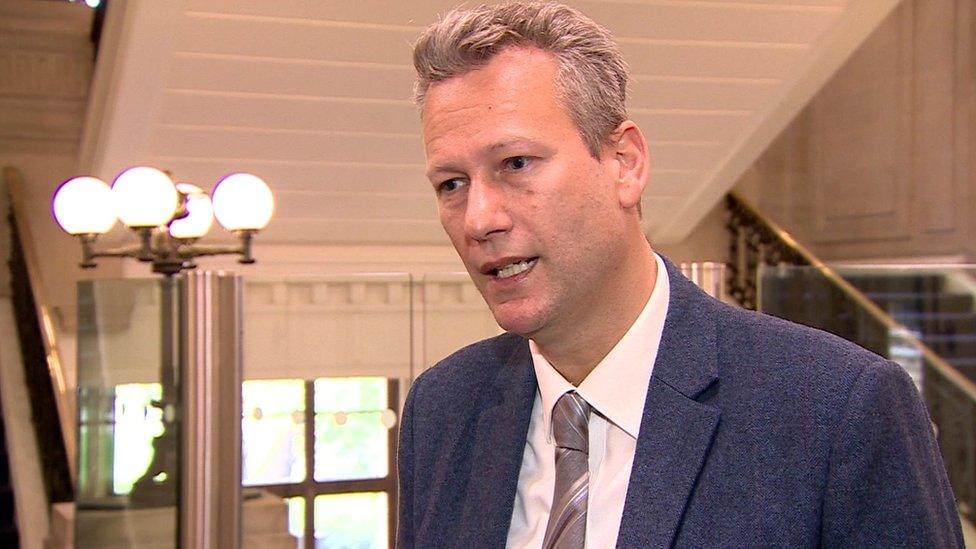
Nathan Gill was elected as an MEP for UKIP in 2014
Nigel Farage was synonymous with UKIP until he fell out with the party, and has formed his own organisation to fight the European elections.
It has a single message - for the UK to leave the European Union now - with the matters of policy and even structure and membership to be left until after May.
Since the start of the campaign the party has gained four AMs, all of whom were former UKIP members.
Nathan Gill - who was elected to represent UKIP as a Welsh MEP in 2014, is a former assembly member and is close politically to Mr Farage - is leading the party list in Wales.
He is followed by former civil servant James Wells, who quit his job as Office for National Statistics head of UK trade to join the campaign.
UKIP
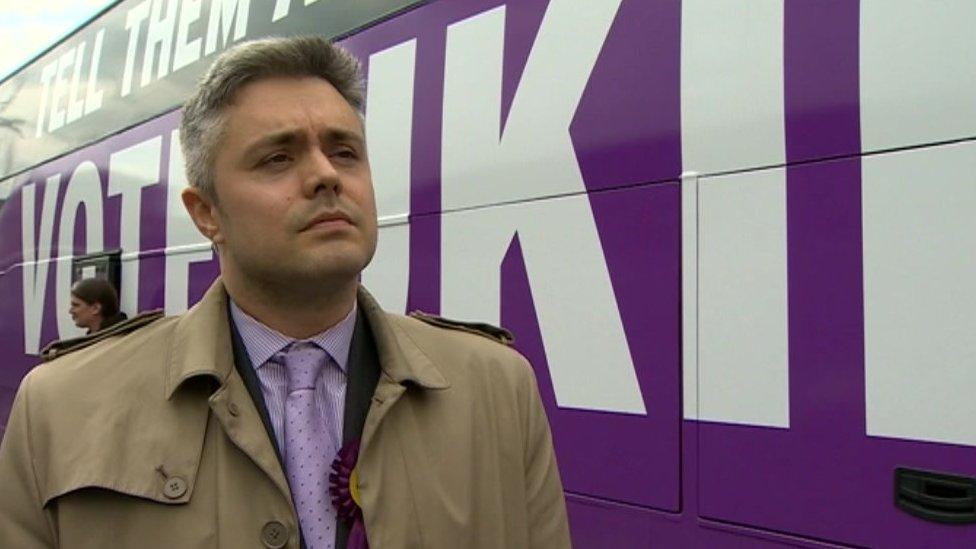
Kris Hicks was selected to be UKIP's lead candidate
The pro-Brexit party has called on voters to back them to "make Brexit happen".
Party leader Gerard Batten has said UKIP is a "real political party" and has attacked Farage's Brexit Party as a "safety valve for disaffected Tories".
With former UKIP MEP Nathan Gill standing for a different party, UKIP's head of press and communications Kris Hicks is standing at the top of the party list.
He is accompanied by Keith Edwards - a freelance management consultant from Cardiff - in the number two slot.
What happened at the last EU election in Wales?
The 2014 election saw UKIP top the poll across the UK. Labour came first in Wales, but only just, with UKIP second.
While Labour's Derek Vaughan was re-elected with 28.15% of the vote, UKIP's list got Nathan Gill returned as an MEP with 27.55% of the vote.
The Tories' Kay Swinburne was re-elected with 17.43% for her party. Plaid Cymru came forth but held on to Jill Evans' seat with 15.26%
It meant that the status-quo from the previous election in 2009 remained.
How does the election work?
Wales' MEPs are elected through a system named after a Belgian lawyer and mathematician, Victor D'Hondt, and via party lists.
After the votes are counted the party with the most wins the first MEP, with the first name from the top of its list being elected.
The number of MEPs the party has won so far is added to its total, and then its vote is divided in half. The totals are crunched again, and the party who comes out on top wins the second seat.
The process is repeated until all the MEPs are allocated. If a party wins more than one MEP then the next candidate down its list will be elected, and so on.
How do I vote and where is the result announced?
Pembrokeshire council is responsible for the European election in Wales.
The result will be declared in Haverfordwest on Sunday 26 May - three days after the poll is held.
You will need to be registered to vote - you can not take part if you were not registered by 7 May.
Postal votes have also been issued and can no longer be applied for. You can find more information on voting at this website, external.
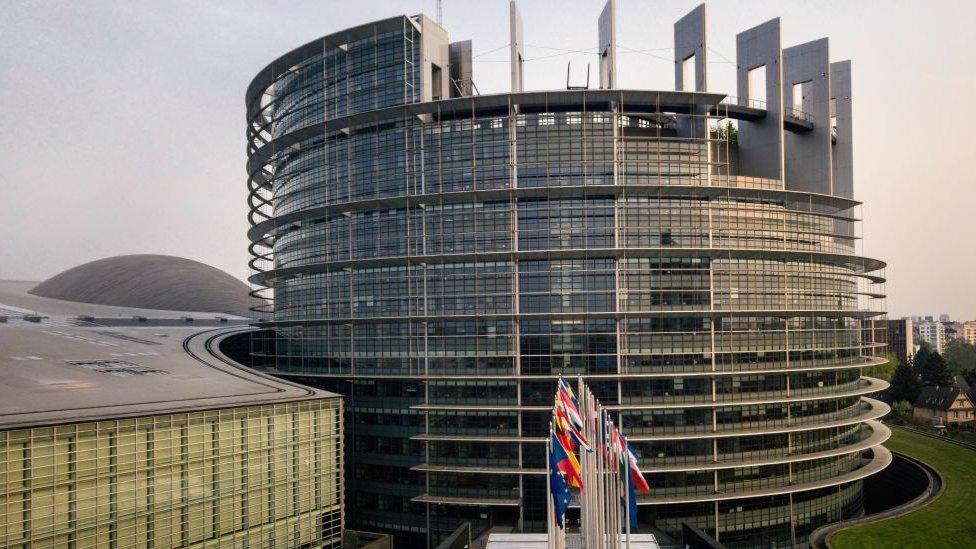
The European Parliament sits in Strasbourg as well as Brussels
Why is this happening?
It is a result of the UK government's Brexit deal failing to pass in the House of Commons, and the fact the process has been extended into the autumn.
The UK was originally due to leave on 29 March, but that has now been delayed to 31 October.
If a deal is agreed in the Commons, however, the UK could leave before Halloween.
Prime Minister Theresa May has said there is a possibility the EU parliamentary elections could be avoided if a deal is passed before 22 May.
- Published18 April 2019
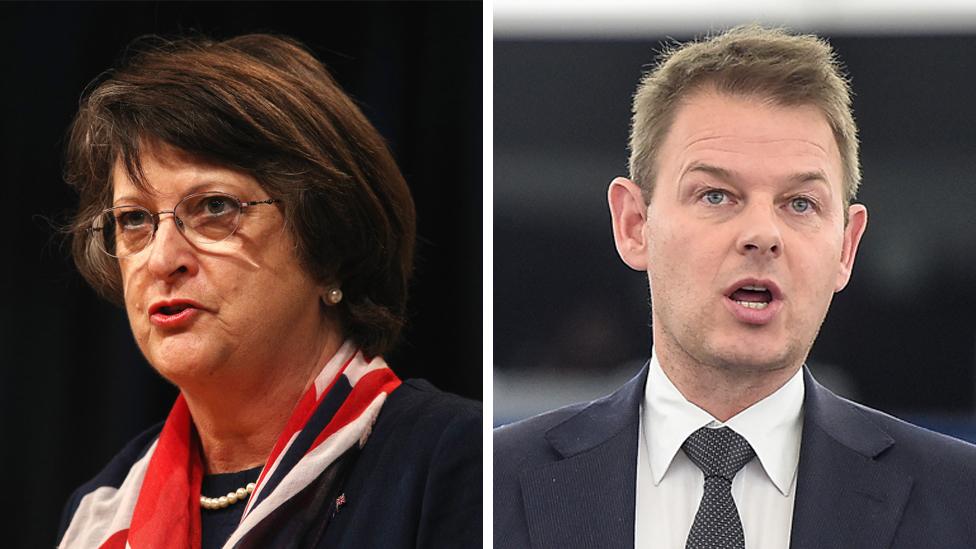
- Published12 April 2019
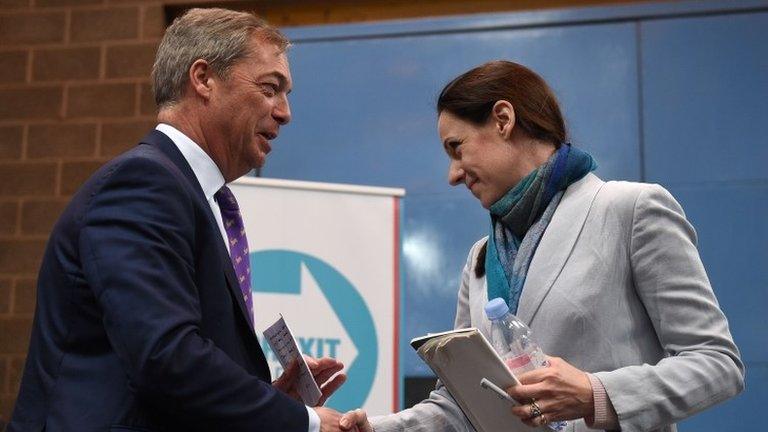
- Published23 April 2019
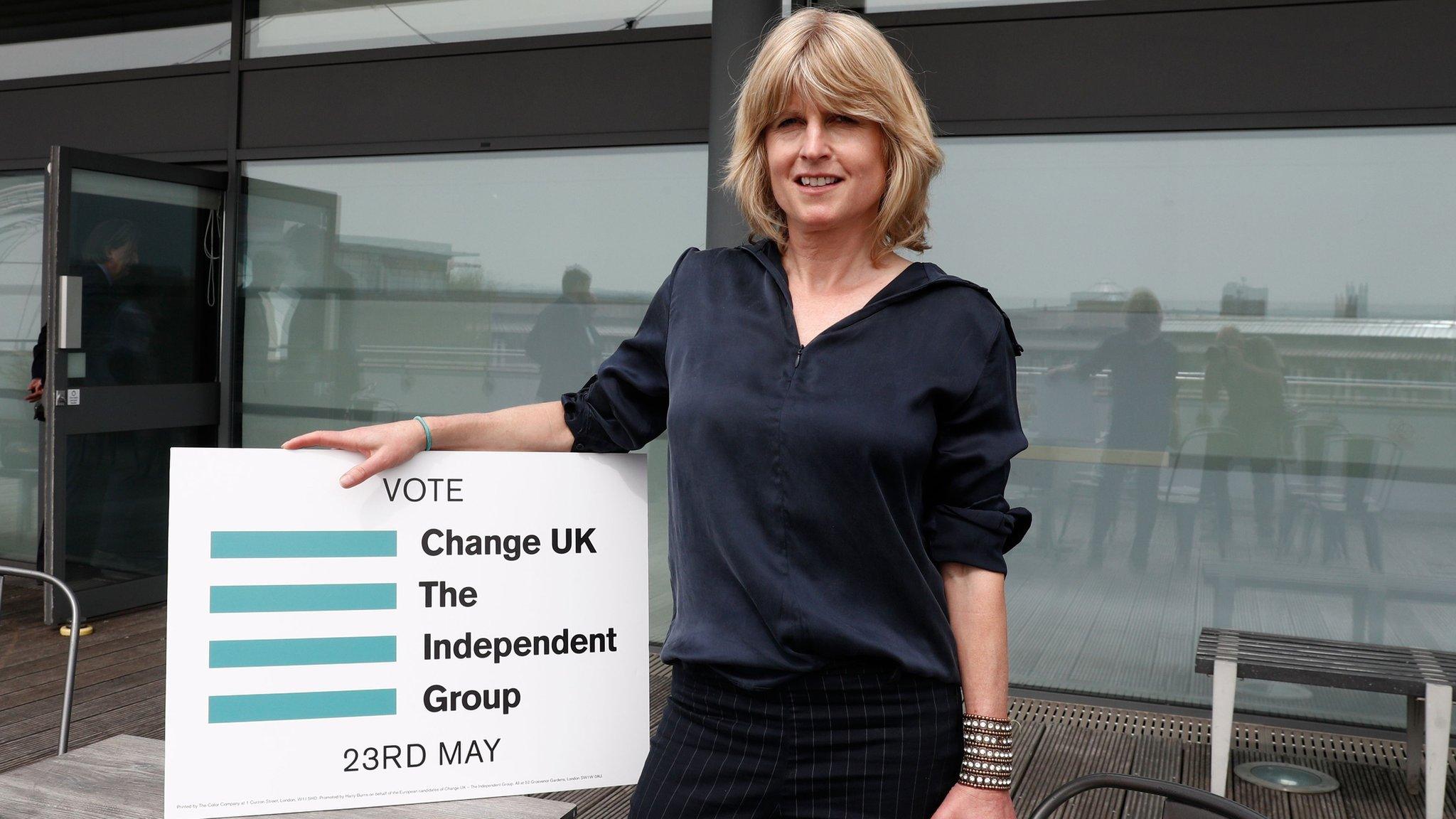
- Published21 April 2019
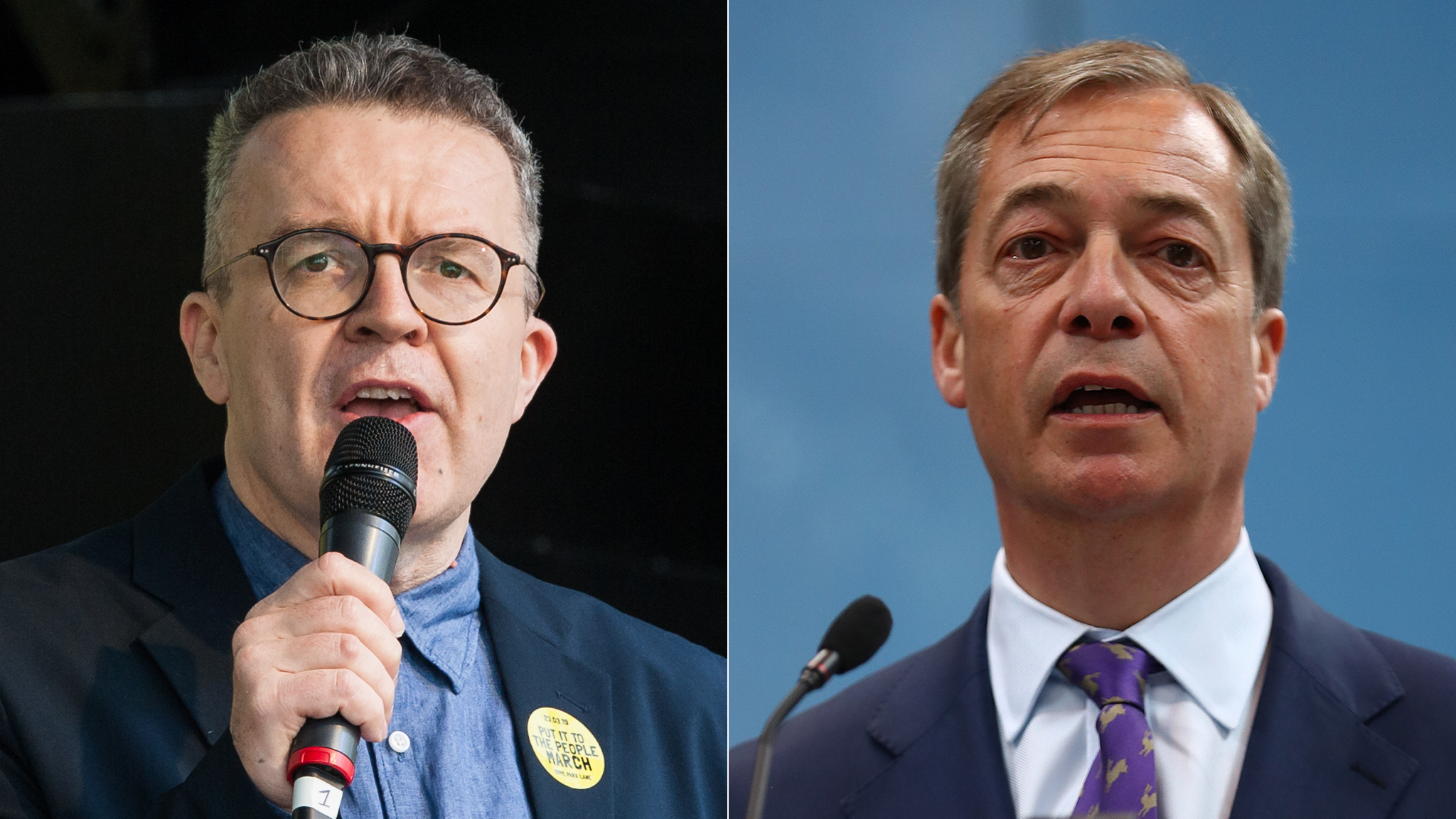
- Published17 April 2019
